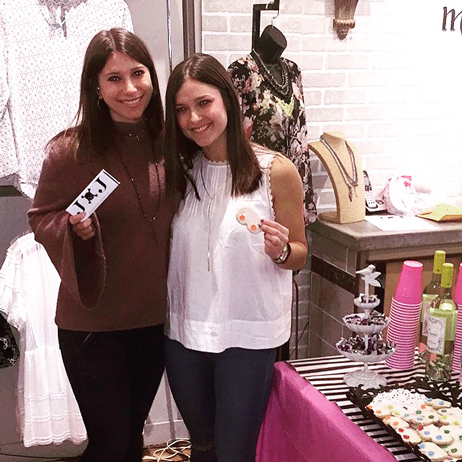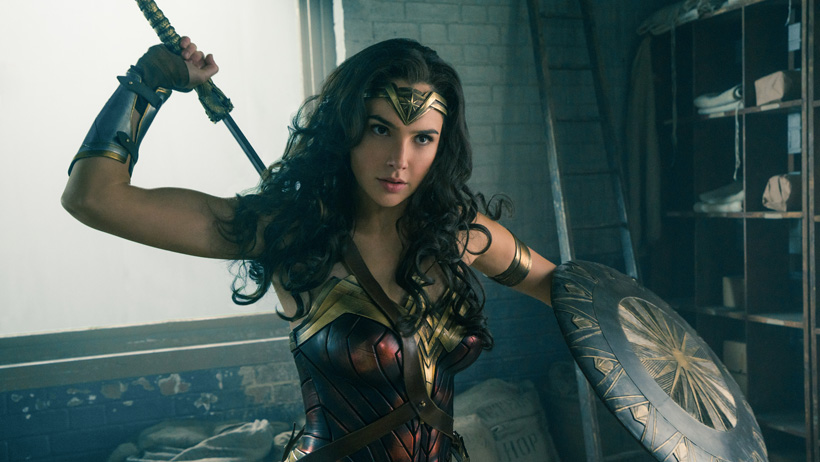Once upon a time I was your average Jewish girl from Chicago. In fact, I still think of myself that way -- I am that way. I've just been told lately that I'm brave -- a compliment I have a hard time accepting.
The reason is that I recently underwent a preventative double mastectomy without shedding a tear (not that there is anything wrong with crying). Instead, I gracefully yet forcefully punched breast cancer in the face. In the event that you get stuck with similar circumstances to mine (which is more likely than you might think), I hope my story will inspire you to do the same.
In 2011, I wanted a breast reduction. When my mom's sister was diagnosed with breast cancer that year, she got to thinking: If there was a reason for me to have a double mastectomy rather than just a breast reduction -- and I would never have to worry about getting breast cancer -- that's something I should do.
We already knew the BRCA (often referred to the breast cancer gene) mutation ran through my dad's side of the family; my grandfather and all eight of his siblings are carriers, leaving our large extended family with multiple breast and ovarian cancer diagnoses over the years. Per my mother's request, I asked my dad to get tested for the BRCA mutation to find out if it was indeed something that would directly affect me.
We knew insurance would cover the cost of the test if there were reason to be tested, so my dad needed to get tested first and if his test came out negative, I wouldn't have to worry about it. To clarify, you can only have the BRCA gene if it is passed down to you from a parent. It does not skip a generation and yes, you can get it from your father. Men carry the gene too. My dad's results came back positive.
Meanwhile, at the doctor with my aunt, my mom asked about the possibility of me getting a double mastectomy. The doctor said that no doctor would perform the surgery on someone as young as me and instead suggested I get tested in my mid-20s. So this past November, at the age of 25, that's what I did.
At this point, I had known for nearly six years that I needed to be tested and was fully prepared to find out if I was BRCA positive. The geneticist explained to me to me what my options would be in the case of both outcomes, but I had spent a lot of time preparing for that conversation weighing out the pros and cons.
The pros included but were not limited to:
- I don't die of breast cancer
- I don't have to aggressively fight breast cancer
- I don't have to explain to my future children I have breast cancer
- I get brand new perky boobs that will be perky forever
- Oh yeah, I don't get breast cancer
The cons:
- Spend a couple of weeks recovering from surgery (sounds better than going through chemo)
- Possibility of infection (sounds better -- and less likely -- than breast cancer)
- Can't breast feed (but I get to live to watch my child grow up)
- Scarring (which I have all over my body from being clumsy)
My mom is the kind of person who feels if something is broken and you can fix it, then fix it and move on to the next thing. That's a trait she's passed on to me. So my mind was made up: If the results were positive, I would have a double mastectomy, no questions asked.
When the geneticist called to tell me I was BRCA positive, the tone in her voice was disheartening. I, on the other hand, didn't think much of the news. She seemed confused at my nonchalant response. Hearing that news is never ideal, of course, but being BRCA negative would not have assured me of anything.
On my dad's side, I watched family members suffer from cancer who were BRCA positive, but in the last couple years, I've also watched women on my mom's side get diagnosed with cancer -- none of whom are BRCA positive. I was at high risk from both sides of my family, no matter what the test results said.
My next steps were to educate myself on BRCA and make any necessary appointments to get my ovaries and breasts checked, which needed to happen twice per year. Initially, I assumed that I wouldn't be getting a double mastectomy until my 30s, as one doctor originally proposed, but after discussing with my OBGYN, we agreed that now would realistically be the best time. I am still on my parents amazing health insurance, I do not have a family of my own to care for and I have a job that is incredibly supportive and would allow me to take the time off that I needed. (Not to mention, fast forward to today -- we don't know the future for women's health insurance coverage).
My decision came down to this: If I put off having a preventative double mastectomy, I would be getting tested twice a year until the day the doctor told me I had cancer. With BRCA, your risk is 87 percent! On top of that, my first MRI bill cost me over $1,000 out of pocket, an expense I could not afford twice a year. Considering all of the information I had at my disposal, it seemed ridiculous not to have surgery. With surgery would come maybe two crappy weeks at worst and most importantly, no breast cancer.
The idea of surgery never bothered me. I never questioned myself. I never felt bad for myself. And I never felt emotional about losing my boobs. The fact of the matter was I wasn't really losing them; I was replacing them and nobody would notice. I had already had a (very much needed) nose job, and a (very much needed) breast reduction (fine, judge me). I saw it like this: I'm not sick. This is a choice I am making and nobody should feel bad for me. It wasn't about being brave, it was about being smart and taking action. I'll tell you what's brave -- not having this surgery and waiting to find out if you get cancer!
At first, I didn't know how to tell people because I didn't want anyone to worry about me. Sure enough, once some friends of mine started finding out, I began getting frantic, worried calls. I assured everyone that I was totally fine, and I was not scared -- so they shouldn't be either.
I eventually decided to share the news publicly on Facebook. I thought it would be an easy way to break the news to friends and family and show them that I was very open and public about it; initially people were afraid to ask me any questions. Also, I make jewelry as a hobby and thought by telling people about my situation I could plug in some (much-needed) self-promotion by donating a portion of my sales to the Norton & Elaine Sarnoff Center for Jewish Genetics (great news, it worked!). I chose to donate to the Center because they were the ones to help educate me on BRCA and connect me to the right doctors.

I don't identify my BRCA mutation with breast cancer as much as I do with my family history. As an Ashkenazi Jew, I am 10 times more likely to carry the BRCA gene mutation than someone of non-Jewish descent. The fact is, as a person of Jewish descent, it doesn't matter if you didn't have a bar mitzvah, never went to synagogue, or feel that although your parents are Jewish, you aren't. It's in our blood and we can't escape it! Everyone should be educated on their family/genetic history.
Immediately after sharing my post, I received an overwhelming amount of messages from friends, family, strangers -- all of the above. Their messages were filled with sympathy, fear and sadness. Although I could not have been more grateful to receive so much love and support, and I knew this sentiment was coming from the most amazing place in their hearts, for some reason it bothered me. Like I said, I'm not sick. This isn't a cancer diagnosis; it's actually more like the doctor telling me I'm cancer free. Yippee! I find out I have BRCA before I get cancer and I can fix it? What a deal!
Beside the messages of sympathy, people were coming out of the woodwork to tell me their own stories about cancer diagnoses or preventative double mastectomies. And I should add that I have heard from dozens (that's plural) of people who had breast cancer in their 20s, as well as too many heartbreaking stories of women in their 20s who didn't survive to tell the tale. These numbers are way too high.
I thought people were talking about breast cancer, but started to realize that maybe they weren't really talking about it. I wondered, were people really being open about it? Were there any other people out there like myself who thought this was a simple, logical, straightforward decision?
I wanted to shift the narrative and help people see this the way I did, so I decided to start an Instagram blog called "2ndBaseWithJMH." The purpose of my blog is to educate and inspire people to consider getting genetically tested, take necessary actions and feel amazing about it! My blog's purpose is to provide viewers an opportunity to learn, to think, to laugh (either with me or at me), and ask questions. Check it out and you'll see how I explain the process of my journey and share interesting facts you might not have known otherwise.

My blog does not serve as an outlet for me -- I created it for you, so you can have a place to turn to for information and reason that I didn't, or to help you see that this might be your reality too and you never knew. Overall, the goal is to rid the stigma of fear and promote empowerment. The truth is, there is much more to be fearful of if you do not accept your reality and avoid proper precautions.
I didn't think anybody would actually care what I had to say, but it turned out I was wrong. Friends and strangers reached out from all walks of life, telling me they knew they were at risk from their family history, but couldn't handle the anxiety and/or fear of either getting tested or going as far as having surgery, but after following my blog they realized they had the strength and wanted to do it. Even if I could help one person change their outlook, I will forever feel fulfilled.
Going into this process, I was always positive, genuinely looking at the glass half full. I am only a couple months post-surgery and I am thrilled to share that I have never felt better.
Help me share my story and spread its message! Breast cancer is way too common and with education, technology and the right resources, we can do our best to stop more cases before they ever happen.






.jpg)



